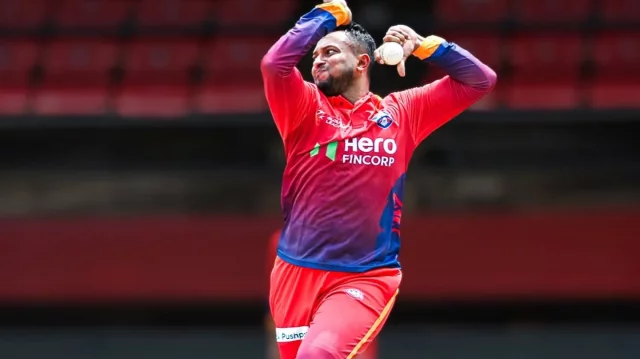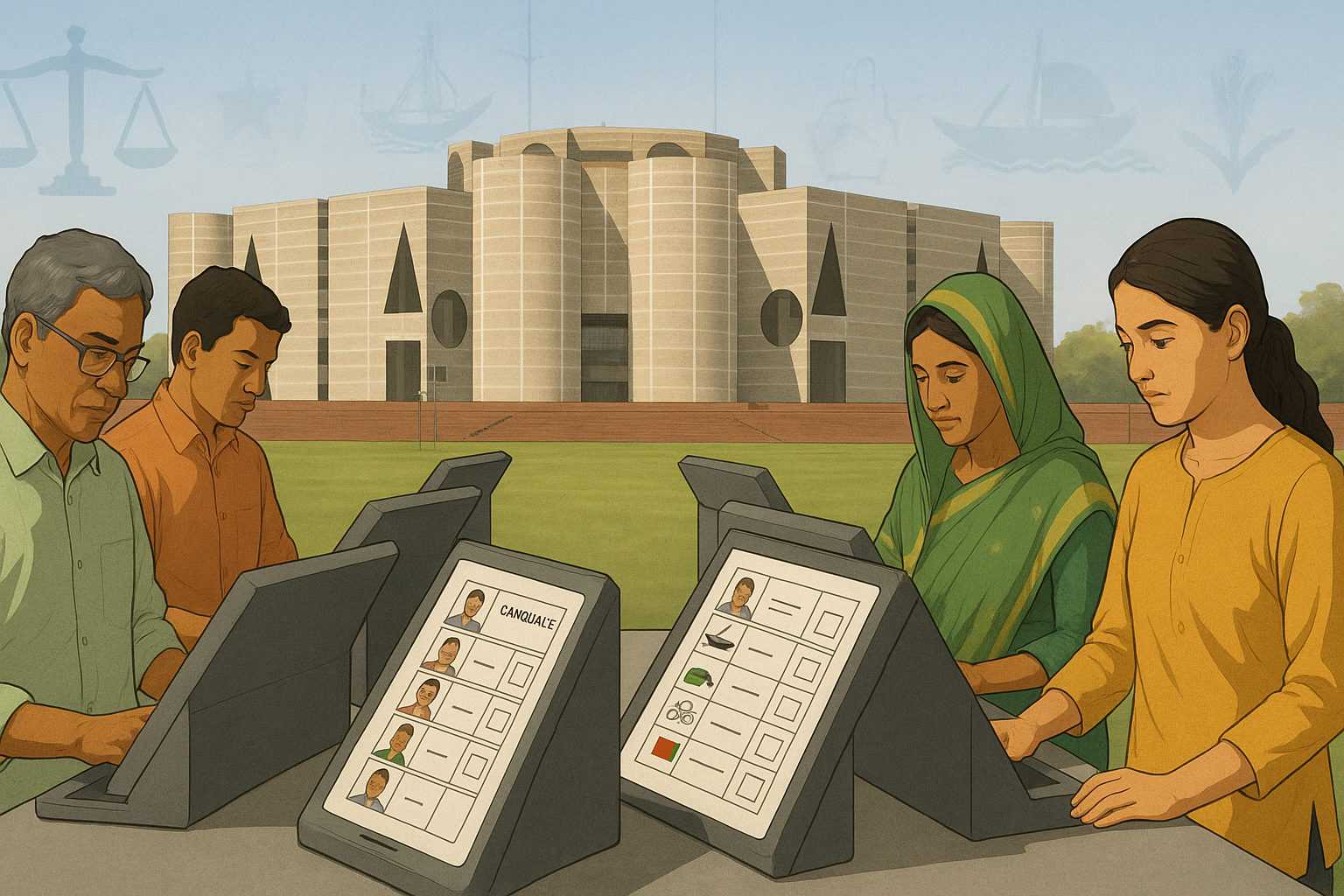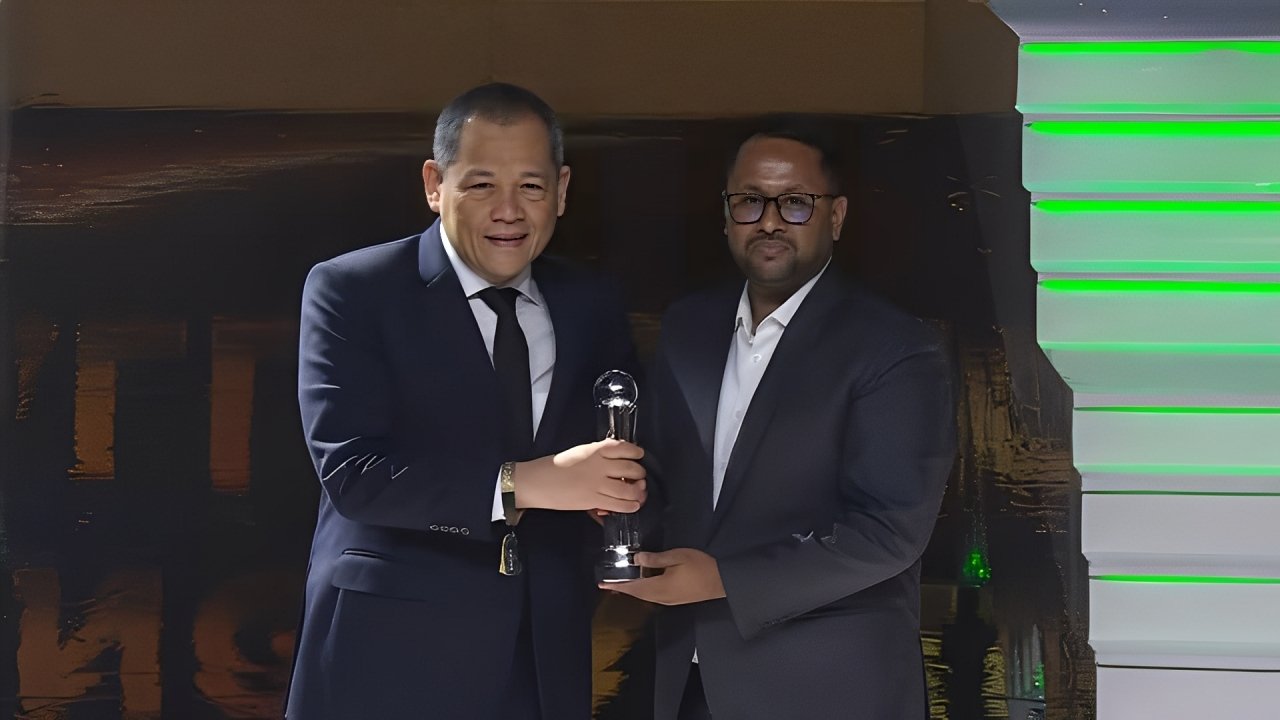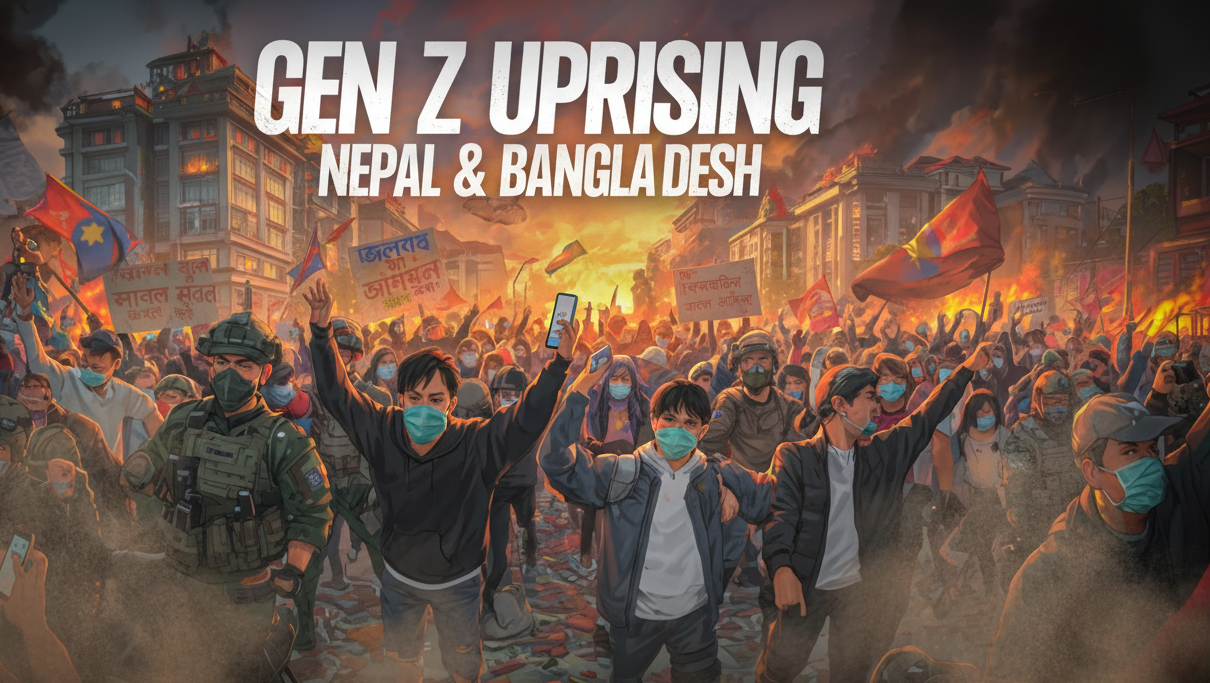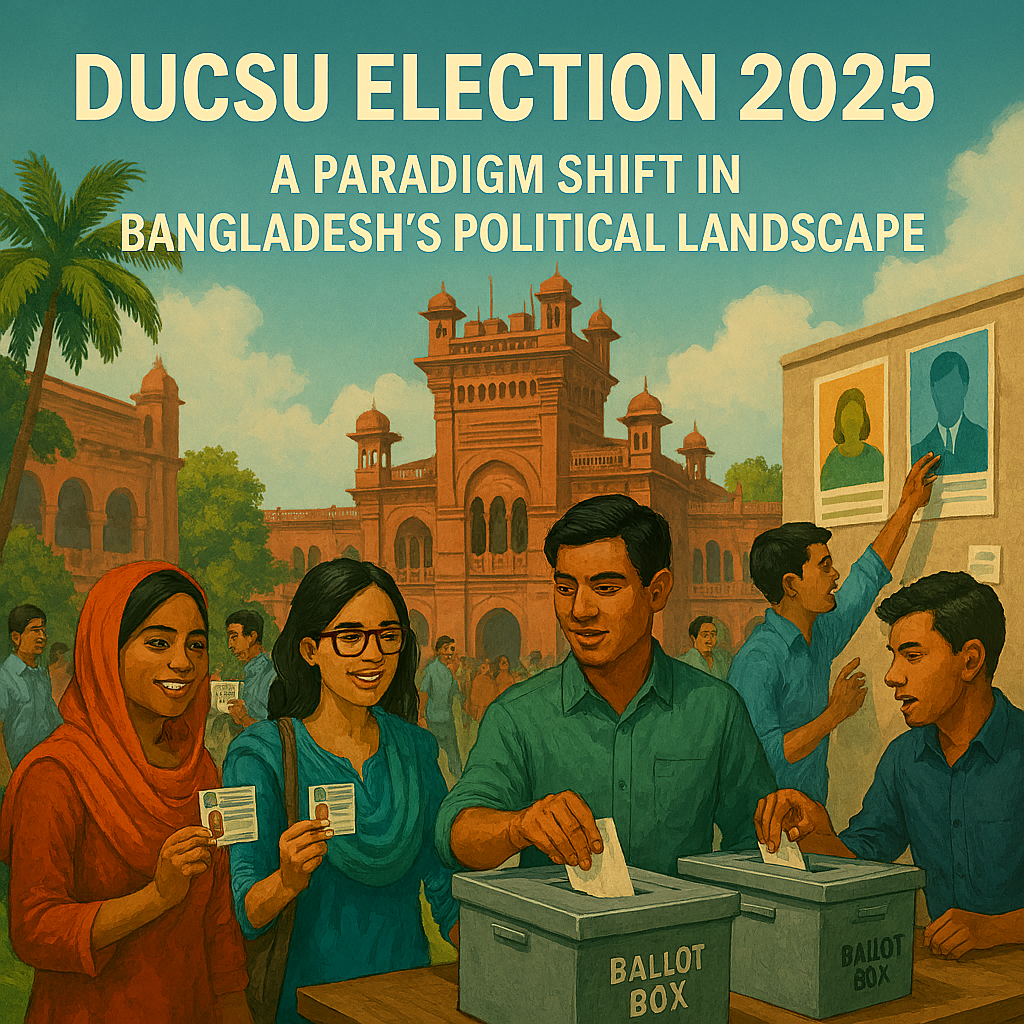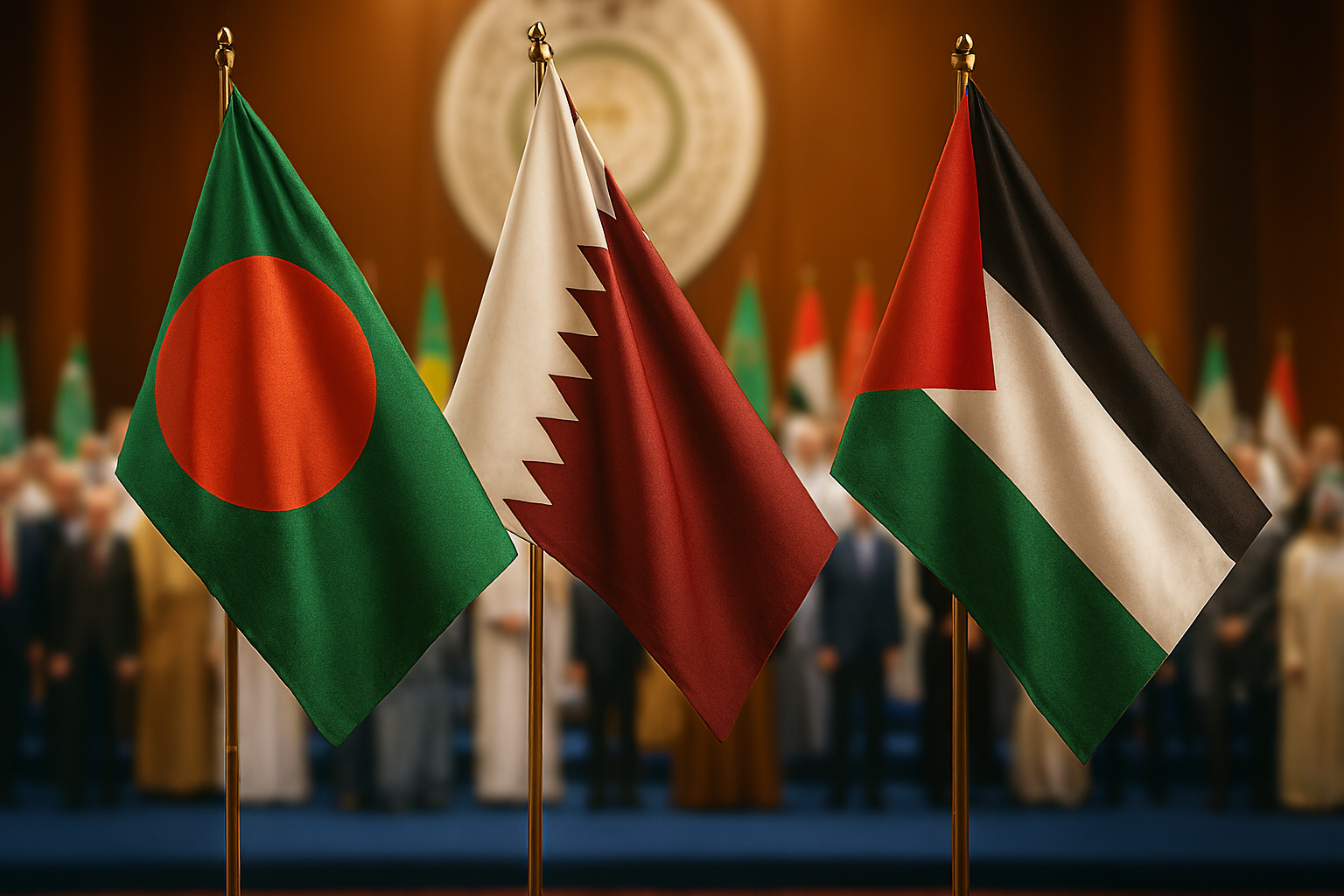Governance in Bangladesh: Understanding the Power Structure
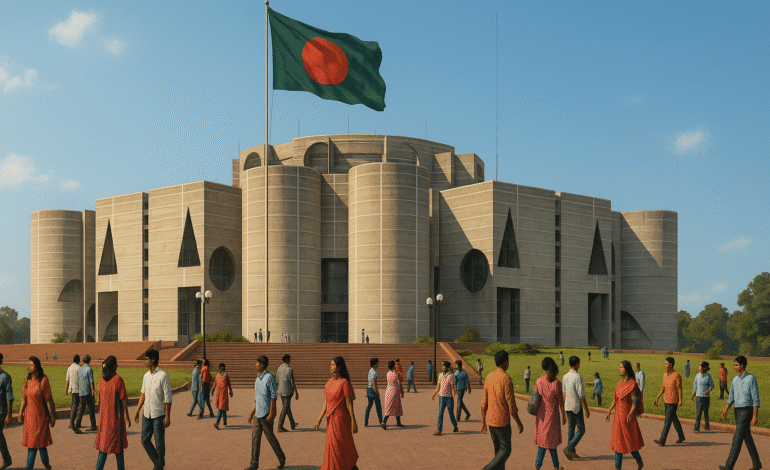
Understanding Governance in Bangladesh
The system of governance in Bangladesh defines how political power, administration, and accountability operate in the country. Bangladesh follows a parliamentary democracy, a system restored in 1991 through the Twelfth Amendment to the Constitution. Before that, the nation had experienced different forms of governance, including a presidential system between 1975 and 1990.
According to the Constitution of the People’s Republic of Bangladesh, the people are the source of all state power. Citizens exercise this power through their elected representatives in the Jatiya Sangsad (National Parliament). The Prime Minister leads the government, while the President serves as the ceremonial head of state.
(You can read the full constitutional framework at the official Bangladesh Parliament website or the Bangladesh Constitution portal.)
This structure is built to ensure balance, accountability, and representation, though challenges remain in ensuring transparency and inclusivity in practice.
The Parliamentary Democracy of Bangladesh
The core of governance in Bangladesh is its parliamentary democracy. In this system, citizens vote directly to elect Members of Parliament (MPs) from 300 constituencies across the country. The political party or coalition with a majority of seats forms the government.
The Prime Minister becomes the executive head, leading the Cabinet and controlling major government decisions. On the other hand, the President—though constitutionally important—has limited authority and primarily performs ceremonial and constitutional duties, such as appointing the Prime Minister and dissolving Parliament when required.
This structure closely mirrors the British parliamentary system, where the executive branch remains accountable to Parliament, ensuring democratic checks and balances.
Historical Evolution of Governance in Bangladesh
Since gaining independence in 1971, Bangladesh has experienced several shifts in governance. The 1972 Constitution first introduced a parliamentary system emphasizing democracy, socialism, secularism, and nationalism. However, in 1975, the government switched to a presidential system, concentrating power in the hands of the President.
This system continued under military and quasi-military rule until 1990, when a popular mass movement restored democracy. The Twelfth Amendment in 1991 formally reinstated the parliamentary form of government.
According to the Election Commission of Bangladesh, voter participation in parliamentary elections has remained between 65 and 80 percent since then, showing strong civic engagement in the democratic process. Learn more about election history at Election Commission Bangladesh.
Structure of Power and Political Institutions
The governance structure in Bangladesh operates on three main branches: the executive, legislative, and judiciary.
- Executive Branch
The Prime Minister leads the government, assisted by the Cabinet. Ministries oversee areas such as health, education, agriculture, and defense. - Legislative Branch
The Jatiya Sangsad (Parliament) is unicameral, consisting of 350 seats, including 50 reserved for women to ensure gender representation. The Speaker presides over parliamentary sessions and ensures legislative order. - Judicial Branch
The judiciary functions independently, ensuring that laws align with the Constitution. The Supreme Court of Bangladesh, divided into the High Court Division and the Appellate Division, interprets laws and protects fundamental rights.
This structure creates a framework where each institution holds defined powers to prevent overreach and ensure accountability.
How Governance in Bangladesh Functions in Practice
In Bangladesh’s parliamentary democracy, governance depends on both political institutions and bureaucratic efficiency. The Cabinet Division plays a central role in coordinating government activities across ministries.
Administrative units extend from national to local levels, divided into divisions, districts, upazilas, and unions. Local government representatives handle grassroots development and public service delivery.
However, despite the formal structure, experts at the Centre for Policy Dialogue (CPD) have highlighted challenges such as over-centralization of power, limited autonomy of local governments, and political influence in administrative functions.
For more insights on decentralization and governance research, visit the Centre for Policy Dialogue.
Comparing Governance in Bangladesh with Other Systems
Bangladesh’s governance can be compared with presidential and semi-presidential systems worldwide.
In a presidential system, such as the United States, the President holds both executive and administrative authority. In semi-presidential systems, like France, power is shared between a President and a Prime Minister.
In contrast, Bangladesh’s parliamentary system keeps the executive accountable to the legislature, ensuring that government policies reflect public will. However, when one party holds an overwhelming majority, accountability sometimes weakens, allowing power concentration within the Prime Minister’s office.
Advantages of Parliamentary Governance in Bangladesh
The governance in Bangladesh offers several advantages when functioning properly.
First, it ensures public representation. Citizens directly elect MPs, and the government’s legitimacy stems from this electoral process. This reinforces the democratic principle that authority flows from the people.
Second, the system promotes accountability. Parliament can question ministers, form committees, and even bring votes of no confidence if the government fails to perform.
Third, it fosters political stability when one party wins a clear majority. This stability allows governments to implement long-term development plans such as Vision 2041 and the Delta Plan 2100, key frameworks for future growth and sustainability.
Information about these development plans can be found on Bangladesh Planning Commission’s official website.
Challenges in Governance and Accountability
Despite these strengths, Bangladesh faces ongoing governance challenges. Political polarization often undermines parliamentary debate, while corruption and weak oversight reduce transparency.
According to Transparency International’s Corruption Perception Index 2024, Bangladesh ranked 133 out of 180 countries, indicating systemic governance issues. Moreover, bureaucratic delays and political favoritism continue to affect public services and project implementation.
Another challenge is the lack of an independent and well-funded local government system. Urban centers like Dhaka and Chattogram face governance overload due to centralized decision-making. Strengthening local governance could enhance accountability and service delivery across the country.
For governance comparison data, see Transparency International Bangladesh.
Public Participation and Democratic Maturity
A key strength of the governance system is public participation. Voter turnout has consistently been high, and civic awareness campaigns continue to encourage political engagement.
However, experts point out that democracy in Bangladesh is still institutionally young. The dominance of major parties like the Awami League and BNP often leaves little room for smaller political voices. To strengthen democracy, Bangladesh needs stronger opposition representation, electoral reforms, and more civic education initiatives.
International organizations like the UNDP and World Bank are actively supporting governance reforms, digitalization, and institutional capacity-building programs in Bangladesh. (UNDP Bangladesh)
The Role of Judiciary and Media in Strengthening Democracy
The judiciary and media are vital pillars of good governance. An independent judiciary ensures justice, while free media fosters transparency.
Bangladesh has made significant progress in digital media freedom, with over 40 million social media users contributing to public discourse. However, regulations like the Cyber Security Act 2023 continue to raise concerns about freedom of expression.
Balanced oversight between regulation and freedom is necessary to maintain trust in governance while preventing misuse of digital platforms.
Future of Governance in Bangladesh
As Bangladesh aims to become a developed country by 2041, effective governance will play a decisive role. Success will depend on strengthening institutions, enhancing public accountability, and ensuring fair elections.
Digital governance is emerging as a key tool. Projects under the Digital Bangladesh Vision 2021 and Smart Bangladesh Vision 2041 are transforming service delivery through e-governance, automation, and citizen engagement.
By embracing technology and reinforcing transparency, Bangladesh can move toward a more inclusive and efficient democratic model.
Building a Transparent and Accountable Future
The system of governance in Bangladesh remains rooted in parliamentary democracy, emphasizing representation, accountability, and rule of law. Over the years, it has evolved through struggle and reform, reflecting the resilience of the Bangladeshi people.
To make democracy stronger, the country must nurture transparency, empower institutions, and encourage informed civic participation. The path forward lies in ensuring that governance serves the people, not power.
With continued reforms, Bangladesh can set an example for democratic resilience in South Asia, combining tradition, modernization, and people’s will in shaping its future.


